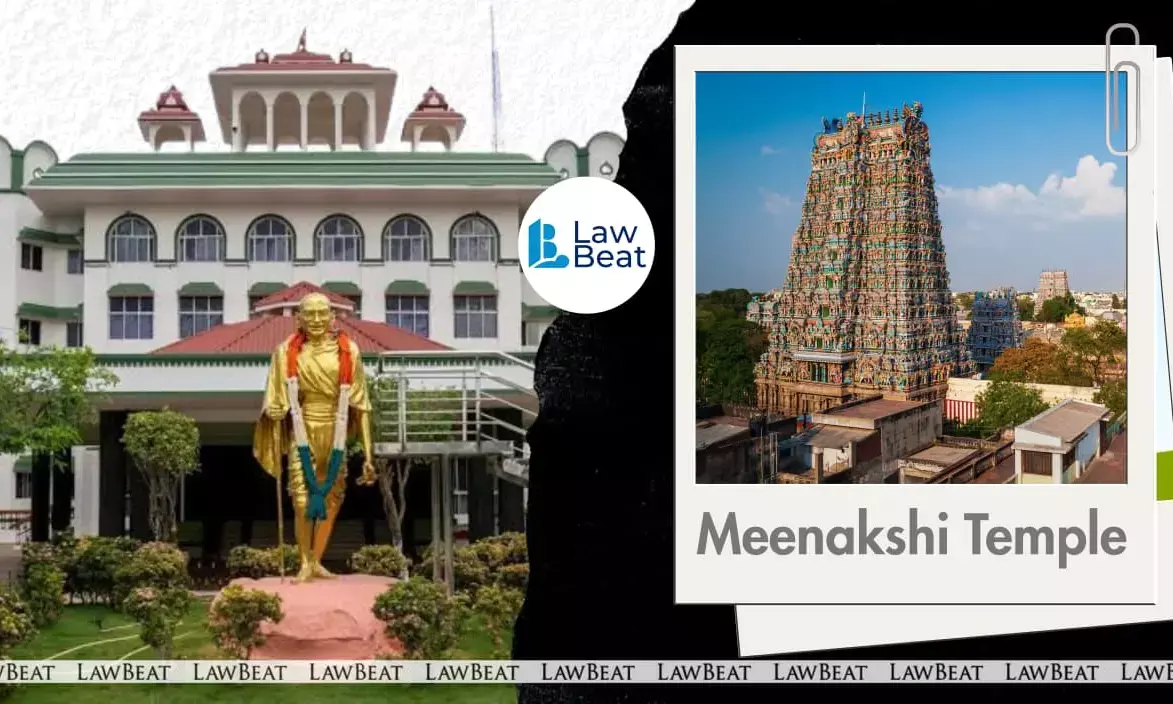Madras HC Seeks Full Details of Meenakshi Temple Properties, Revenue and Encroachments

Madras HC seeks full details of Meenakshi temple properties
The Madurai Bench of the Madras High Court has directed the state’s Hindu Religious and Charitable Endowments (HR&CE) Department to provide comprehensive details of the properties held by the renowned Madurai Meenakshi Sundareswarar Temple and its subsidiary shrines.
In a public interest litigation (PIL) filed by A. Radhakrishnan of Salem, who urged the court to expedite restoration works at the temple and ensure the security of its assets, the division bench of Justices Anita Sumanth and C. Kumarappan also ordered for disclosure of revenue generated from the temple properties and any actions taken against encroachments.
The petitioner highlighted that in 2021, the High Court had directed the state’s Chief Secretary to convene a meeting of all relevant departments to devise measures for safeguarding temple properties. Although a meeting occurred on 23 August 2021, no subsequent follow-ups were held over the following four years.
Upon further court orders, a report was submitted by the joint commissioner on 4 September. The judges, however, found the report lacking in detail particularly the absence of meeting minutes, despite references to meetings being held.
The matter is now scheduled for further hearing on 7 October, 2025.
Recently, the High Court made it clear that temple money cannot be diverted for non-religious use. Court thereby put an end to the State’s plan to use Rs. 80 crore from surplus temple funds for building and renting marriage halls in 27 temples across the State. The government had planned to construct the marriage halls nearby temples on temple lands to assist Hindus to perform marriage functions with less expenditures. The government intended to rent out these halls. It claimed that a Hindu marriage is essentially a religious activities therefore, the halls construction would be for a religious purposes as provided under the Tamil Nadu Hindu Religious and Charitable Endowments Act, 1959.
Tamil Nadu is one of the few states where thousands of Hindu temples fall under direct government control. The HR&CE Department, set up under the 1959 Act, manages finances, staff appointments, rituals, and property for over 36,000 temples, 56 mutts, and numerous trusts and endowments.
This system was originally meant to ensure accountability and prevent misuse but it also led to debates over state interference in religious affairs.
The high level of control has brought several complications. Recently, the high court summoned HR&CE officers for allowing shops in ancient mandapams of Nellaiappar Temple, potentially harming heritage and religious ambiance. Although, government efforts have retrieved thousands of acres of land encroached upon, yet billions remain unrealized in fair rent, and mismanagement continues to harm temple wealth.
Case Title: A.Radhakrishnan vs The Chief Secretary to Government And 70 Others
Order Date: September 4, 2025
Bench: Justices Anita Sumanth and C. Kumarappan
